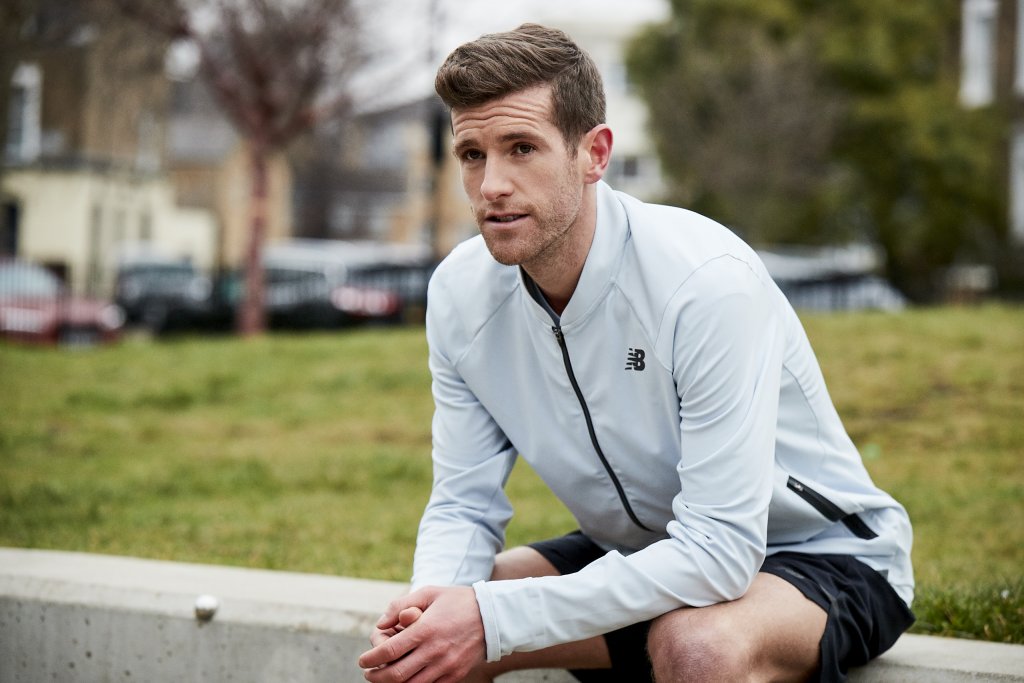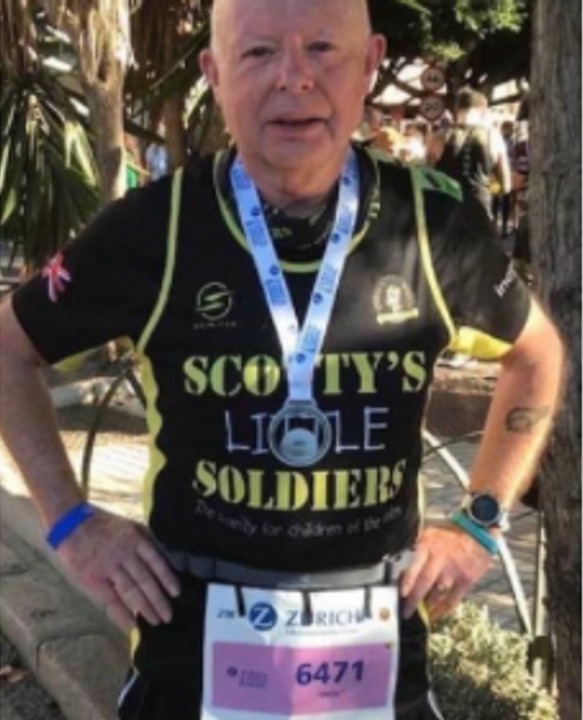We are delighted to bring you written up notes from our chat last week with Jonny Mellor where we talked all things marathon and running to trying and bring some of his experiences into the helping coach our group.
Interview with Jonny Mellor

What made you and your coach Steve Vernon want to do a marathon?
Jonny said he got stuck in a bit of a rut doing three sessions per week with his old coach. He changed coaches to Steve Vernon who wanted him to work on his speed for a year first before transitioning up to the Marathon, doing his first one in 2015 where he ran 2:16 in Frankfurt.
Do you have a specific number of weeks preparing for a marathon?
12-14 weeks works best for him. Any longer he feels like he goes over the edge but the Commonwealth Games in Birmingham this year he only has a 10 week build up.
Before each marathon block he works best by getting himself into decent 10K or even shorter distance shape, using this speed to elevate his paces during his specific marathon block. In his first year he ran 1500m races before running Frankfurt in the Autumn.
Has your marathon preparation changed with each race you have completed?
On the two occasions he ran New York marathon he ran more hills in the build up knowing that this was a hilly course. In preparation for aiming to win Manchester marathon he knew the plan was to break free from the group with 4 miles to go so he replicated this in his training, completing his latter miles of his long runs at a faster pace.
What markers of improvement do you use in training or in a lab?
He has a lactate test annually but also uses key sessions to analyse where his fitness is. He stated that he didn’t like comparing previous sessions but knows that it is a necessary indicator if he wants to measure his fitness status. One key session that he uses is two laps around the undulating and changing underfoot conditions of Ladybower reservoir. He stated that the route wasn’t ideal but it was a key marker that works for him and his coach. He is a key believer of using a hillier terrain to get stronger.
What does your strength and conditioning program involve?
Jonny stated that he does 2 sessions per week of basic but key exercises which included calf raises, goblet squats, single leg Romanian deadlifts and when he goes to the gym he uses the leg press. He was keen to state that “basic is best” and whatever helps and does not hinder his running training. At home he uses a 20Kg kettlebell. His sessions are short, 90 minute sessions in the gym he found just fatigued him when in marathon training. Although a qualified personal trainer himself, his program is overseen by Chris Bramagh a physiotherapist specialising in runners in Manchester.
What other professionals help with your training and racing?
I have my coach Steve Vernon who I have been working with since 2014. He found working with Steve a refreshing change and realised that dropping to two key sessions per week rather than three triggered a marked improvement in his performances.
Throughout his running career he has also had a weekly “maintenance” massage which he finds helps prevent injuries from occurring and also alerts to potential injury and possible training overload.
He also has a monthly MOT with a physiotherapist who specialises in runners. This helps identify any issues/changes with his biomechanics that he can then quickly start to correct with exercises, again as a means of injury prevention rather than just seeking help when injured which he stated the obvious is just too late!
How do you determine your goal pace you can maintain and how close do you usually get it?
He stated that he trusts his coach implicitly in what times he can achieve. Steve stated that he was in 2.09 shape but knew with the field in Manchester it wouldn’t be won in that with the plan of leaving it late to drop the field so he was confident that he could race tactically aiming for 2.10 and feeling easier for a big proportion of the race.
How important do you believe races are within your marathon build up?
He doesn’t feel that he needs “reassurance” of doing races in his build up, he finds his training gives him a better indicator of what shape he is in. He did state that if there was a race that replicated one of his key training sessions then he would use it. He was pretty clear that he was happy to run poor times in races the rest of the year as long as his two key marathon performances in the year were on target.
He has a 10k in a few weeks time and he was grinning at the fact that he knew he would run poor in his standards but he didn’t give a “s..t” because he was marathon training. He stated that too many runners want a PB every race and this is just not realistic.
What does your post marathon recovery look like?
In the first few days he doesn’t run at all and then in the first two weeks he generally runs as he feels which is usually alternating days with his wife Sophie and the dog. He would expect to get back into “proper” training no earlier than 4 weeks later. His first session back after Manchester marathon was a warm up followed by 8 hill reps and 8 x 200m faster paced strides. He was keen to state that after a good performance he has made the mistake of getting back into training too soon and it has had negative consequences.
What does a general marathon week training look like?
Jonny tops 100+ miles per week when in full training. This consists of one long marathon paced run which may consist of changing paces, fartlek, blocks of marathon paced efforts and faster finishes which he nearly always does on two loops of Ladybower reservoir. He does a mid week session per week which starts at 12 miles building up to 18 miles. A steady 15 mile run and then the rest is made up of double days of miles which are consistently between 90 seconds to 2 minutes per mile slower than his marathon pace of 4.47. Plenty of runs that he does are on undulating courses despite having a fast flat canal path on his doorstep. He also runs with his wife Sophie and his dog too which helps him to keep the paces slower.
He kept referring to when he trained in Iten in Kenya the surfaces/terrain that they spent a lot of time on was often undulating and trails and since he has liked to replicate this. He doesn’t find personal benefit in looking for a fast industrial estate to do reps around!
How many different pairs of shoes do you rotate through in a weekly training cycle?
Jonny is sponsored by New Balance and wears a couple of cushioned 1080’s for his daily runs. He wears the Rebels for his sessions and was very clear that he only wears his carbon plated shoes in the final stages of his marathon preparation during his marathon paced long runs and his mid week session which builds up to 18 miles of kilometre alternations. He was very clear about wanting the hardness of road running conditioning that is key to get through the marathon and only in the later stages would he transition to a cushioned carbon shoe for his final faster goal paced runs and when his mileage was at its highest volume.
What hydration and nutrition strategies do you use on race day and in the final few days and how often do you practice them?
He was clear to state that although there is no denial in the difference the carbon shoes have made, the advancements in fuelling on race day has made the biggest improvements. Aligning with many elite marathoners now including Kipchoge, Jonny has been fortunate enough to be tested in a lab to find out how much fuelling is required to perform at his best on race day. Wait for it… incredibly Jonny is required to have 96g of carbohydrate per hour to fuel his best performance! He uses OTE gels and sports drinks.
He was keen to stress that your gut has to accommodate to this amount of carbohydrate and improves its tolerance over time, therefore he practices fuelling on long runs and key sessions all year round.
In the days leading up to the race he becomes very “plain” with his eating. He sticks to rice and chicken in the main and stops eating fruit and vegetables in order to eliminate any gut issues on the day. He eats low fibre foods so that his body doesn’t absorb too much water to prevent excessive and unnecessary swelling.
If he is feeling lethargic come race day he knows that he is ready for a good performance. If he feels light and energetic this is not a good sign for him!
A massive thank you to Jonny for taking time out from preparing for his next marathon which is for England in the Commonwealth Games in July to chat to us and allow us an insight into his training and good luck in Birmingham.


